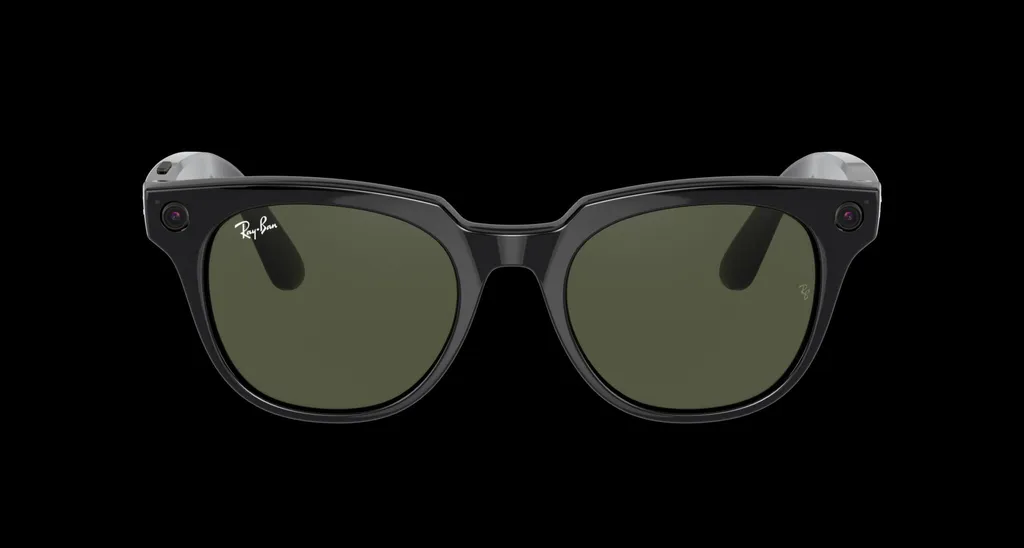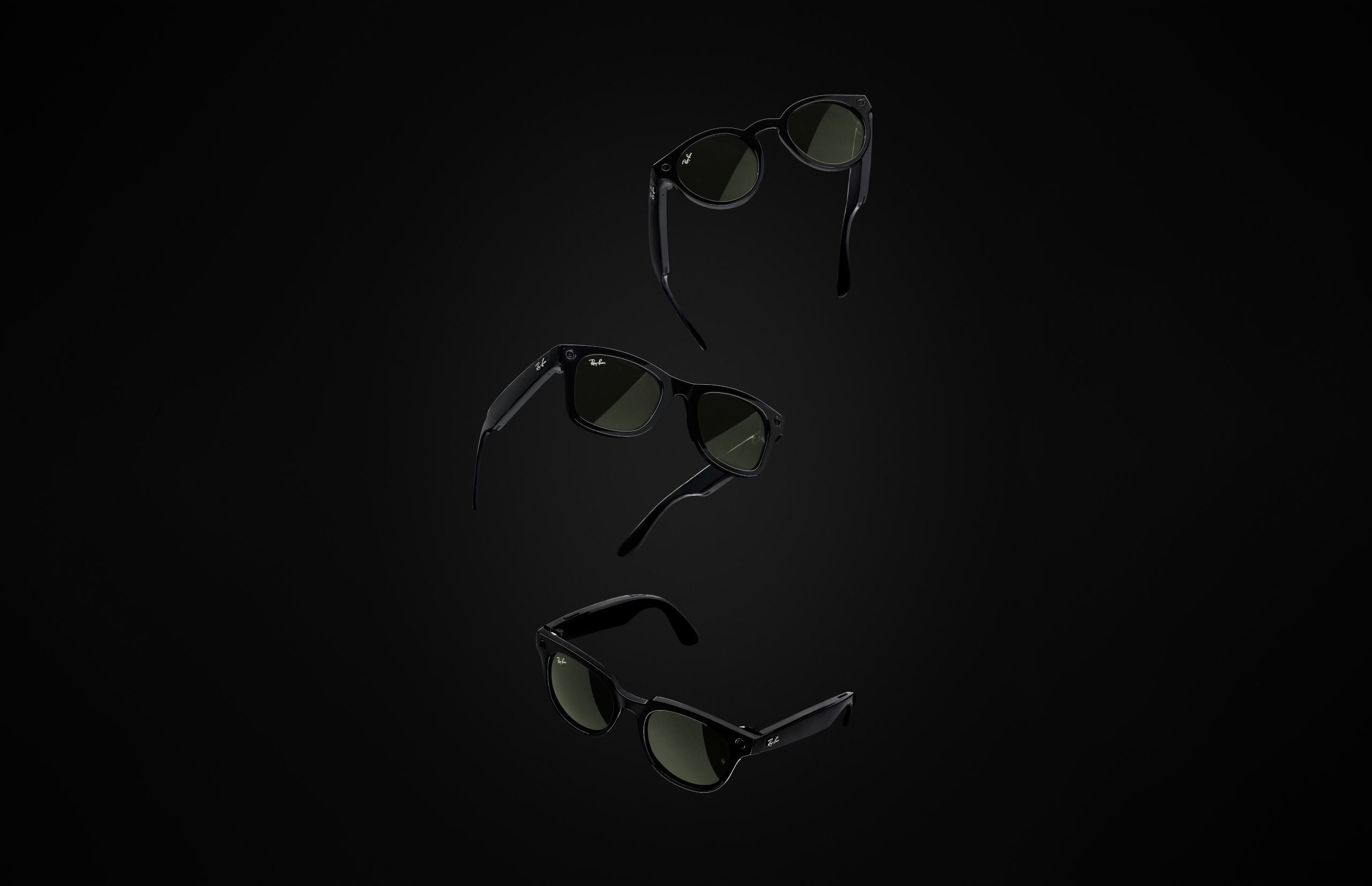After a week of teases, Facebook and Ray-Ban are finally announcing Ray-Ban Stories, a new line of smartglasses with built-in cameras and Facebook features.
Check out the full announcement video including an introduction to the kit from Facebook CEO Mark Zuckerberg and Rocco Basilico of Ray-Ban brand owner Luxottica below.
Ray-Ban Stories Specs And Features
As expected (and essentially confirmed in a leak earlier today), Ray-Ban Stories are sunglasses that resemble traditional Ray-Ban models with small cameras embedded in the top corners of the rims. Like the Snap Spectacles before them, you can use these cameras to instantly capture point-of-view footage, as was demonstrated by Facebook VP of VR and AR, Andrew Bosworth, in a tease earlier this week. The glasses don’t, however, feature any sort of VR or AR functionality.
The dual 5MP cameras capture up for 30 seconds of video or images. An LED lights up when the glasses are recording or taking a photo. There’s also built-in Bluetooth support and a 3-microphone audio array allowing you to connect to your phone to take calls or listen to apps.
As for Facebook features, the glasses are integrated with the Facebook Assistant, allowing you to operate the glasses with your voice. You can also use the Facebook View companion app to share media through other services including non-Facebook applications.
Ray-Ban Stories Price And Release Date
Ray-Ban Stories are launching today in the US, UK, Canada, Italy, Ireland and Australia and start at $299 USD, the same price as the entry-level 128GB Oculus Quest 2 VR headset. You can also pick them up with Polarized lenses starting at $329 or Transitions lenses starting at $379. The glasses come in three models named Wayfarer (Wayfarer L), Round and Meteor and are available in five different colors.
Are Ray-Ban Stories AR Glasses?
In a nutshell: no. AR technology has a spatial understanding of the world around you and then uses that information to project virtual images into your environment. Ray-Ban Stories won’t do this, and they won’t even have an overlay interface. They do, however, represent a form factor that Facebook is no doubt keen to one day reach with an AR headset; current devices like the Microsoft HoloLens 2 and Magic Leap One are bulky and unfit for all-day use. Facebook Reality Labs, the division of the company responsible for AR and VR technology, is using prototype AR glasses not intended for consumer use, but it will be some time before the company brings a true consumer AR headset to market.
What do you make of Ray-Ban Stories? Will you be picking up a pair? Let us know in the comments below!





























